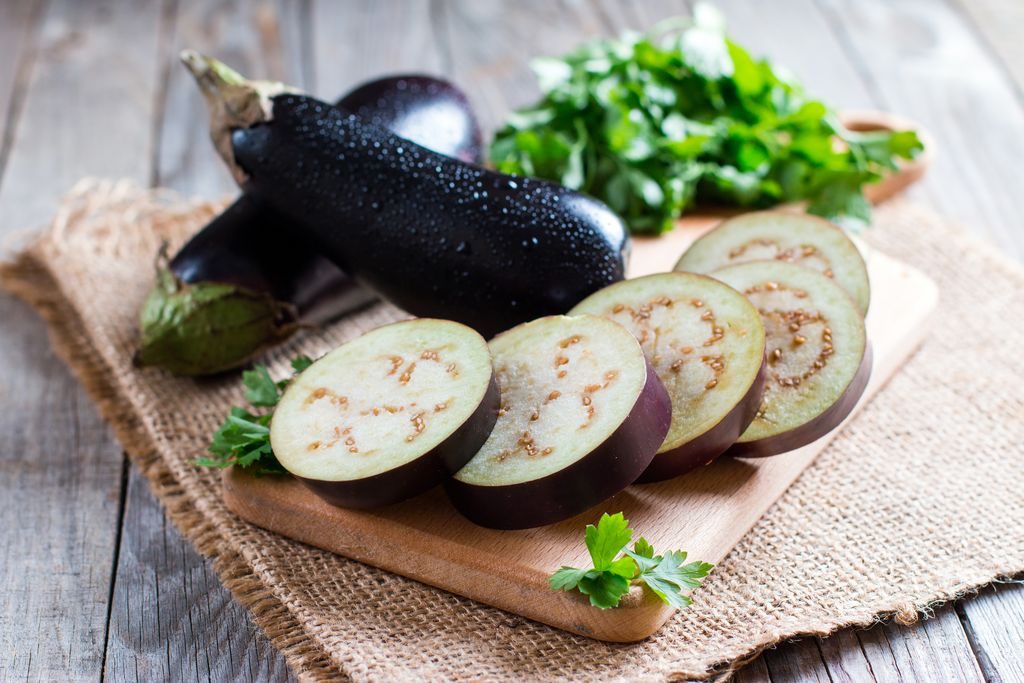Aubergine
Aubergines are a super versatile ingredient used in many dishes around the world.

Aubergines (also known as eggplant in American English) are a super versatile ingredient, commonly found in cuisines across the world, especially Asian, African and Mediterranean cooking. Although often considered a vegetable, it is actually a fruit.
They absorb flavour easily and they retain their shape well making them great for curry, stews, stir-fries, and a huge array of other dishes. They can be roasted, fried, baked or grilled on a bbq!
They have glossy dark purple coloured skin and a spongy white inside which quickly turns brown when cut. They come in a variety of shapes and sizes, ranging from short and fat to long and thin.
The average aubergine will weigh about 250 grams.
Aubergine Recipes
- Parmigiana – Also called parmigiana di melanzane, is an Italian dish made with fried sliced aubergine, layered with mozzarella, parmesan and tomato sauce, then baked.
- Pasta – Pasta alla Norma is an excellent great example of amazing aubergine pasta. Comprised of spaghetti, sautéed aubergine a rich tomato sauce, topped with ricotta.
- Miso aubergines – Grilled aubergines brushed with miso paste, commonly served as a side dish
Salad – Sliced and grilled aubergine is great in salads and - Moussaka – This greek dish is made with ground beef (or lamb) layered between aubergine slices and bechamel sauce.
- Ratatouille – Ratatouille is a French vegetable stew made with tomato, garlic, onion, courgette, aubergine, and bell peppers.
- Dips – Baba ganoush Is a classic Lebanese dip made with roasted aubergine, olive oil and lemon juice. Another great dip made with aubergine is the Greek Melitzanosalata – made from roasted or charred aubergine, garlic, onions, olive oil, lemon juice, and parsley. Both go amazingly with pitta bread and fresh vegetables.
Aubergine Nutritional Information
Aubergines are rich in vitamins, minerals and dietary fibre! They are high in Vitamins B1, Vitamin B6 and potassium. Furthermore, they contain small amounts of niacin, magnesium and copper.
Aubergines also contain nasunin, an antioxidant that also helps prevent the buildup of plaque in the blood vessels, keeping your heart healthy. Antioxidants help your body fight free radicals which can cause cell damage.
There are about 24 calories per 100 grams of Aubergine.




